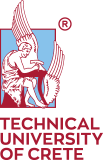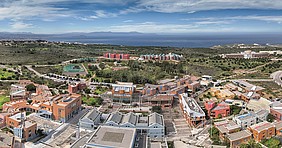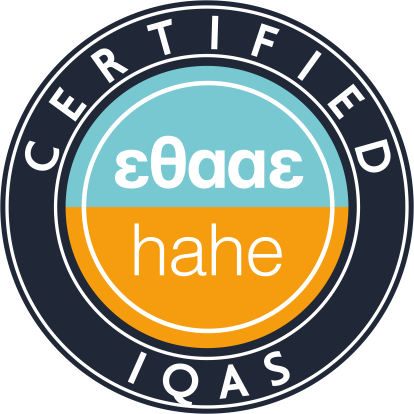Dear members of the TUC Community,
all together, as a community, we made great efforts to complete the examination period of the spring semester 2020 smoothly. We are now called to make similar efforts for the conduct of the re-examination period 2019-2020, which starts on August 26, 2020 and ends on September 22, 2020, under the adverse and unpredictable conditions of the pandemic. During the 4 weeks of the re-examination period, a total of about 400 undergraduate courses from the entire academic year and from all Schools of the Technical University of Crete will be examined.
Recently, two government decisions have been published that delimit the re-examination period procedures, both from an academic and from a health point of view:
-
Ministerial Decision on how to conduct the exams during the re-examination period
(Government Gazette 3073, vol. B’, 23.07.2020) [pdf] -
Joint Ministerial Decision on measures against COVID-19 in Universities during the re-examination period
(Government Gazette 3473, vol. B’, 20.08.2020) [pdf]
Each member of the TUC Community should read the above texts to acquire an accurate, personal knowledge of the context in which we operate as an Institution. On July 24, 2020, the Senate of the Technical University of Crete (conference meeting 531/24.07.2020) decided to implement without changes the recent Senate decision on the available examination methods. On July 31, 2020, the schedule of the re-examination period was announced, which includes both live and distance exams, according to the choices of the instructors.
Until today, we have been closely following the developments and the announcements of the Ministry of Education regarding the final instructions for the re-examination period, which were published only yesterday. The new Joint Ministerial Decision delimits the process in a stricter context in comparison to the spring semester exams. We summarize below the basic points that we must all keep in mind.
-
The use of a non-medical mask is mandatory for both students and teaching and other staff throughout the examination and for all forms of live examinations (written and oral).
-
The use of a non-medical mask is mandatory in both open and closed public areas of the University due to the high synergy of the students, as well as in the common areas of the student dormitories.
Therefore, based on the above, all participants in the live exams should make sure to wear a mask from the beginning to the end of the exam. In each examination area, masks will be available for those who have not already taken care of themselves. Even outside the exam times, a mask must be worn at all times in every common area of the TUC campus.
-
The use of rooms, amphitheaters or offices with natural ventilation is recommended when conducting written and oral examinations.
-
In case there is insufficient availability of rooms with natural ventilation, the use of halls, amphitheaters and offices that have ventilation and/or air conditioning units is recommended in accordance with the provisions of the recent directive of the Ministry of Health.
Most of the live exams will be held in the covered parking lot of the Science Building, which has plenty of natural ventilation and allows long distances to be observed between the examinees. In addition, some rooms (e.g. computer rooms) will be used, which will be ventilated in a natural way (open doors and windows). However, because these spaces alone are not enough, some large amphitheaters and halls will be used that are air-conditioned in accordance with the directive of the Ministry of Health (in short: regular maintenance, cleaning of filters, fresh air supply, continuous operation).
-
The University is recommended to take special care of students belonging to high-risk groups (vulnerable groups) in order to avoid being co-located with other students during live exams.
-
Respectively, the Assembly of each Department is recommended to take special care of the teaching staff of the University belonging to high-risk groups (vulnerable groups).
The Senate Decision (last section) already provides alternatives for the above special cases. If the conditions are met, the interested student should submit his/her application electronically to the School Secretariat (not to the instructors) using their institutional email, along with the necessary supporting documents (medical certificate or personal statement) to substantiate what is stated in the request. Requests must be submitted before the start of the re-examination period (except in unexpected and emergency cases) and apply to all courses examined. The requests are examined by the Dean and, if approved, the interested student contacts the instructors to discuss the alternative ways of examination. The above apply accordingly to the teaching staff, but instead the requests are examined and approved by the Assembly of the respective Department/School.
We hope for the cooperation and assistance of all members of the TUC Community for the success of this rather difficult endeavor. We will constantly monitor developments and remain alert to deal with emergencies and adapt to new data. Please, be patient in the tribulation we all experience as individuals and as a society.
The Rector of the Technical University of Crete
Professor Evan Diamadopoulos
















